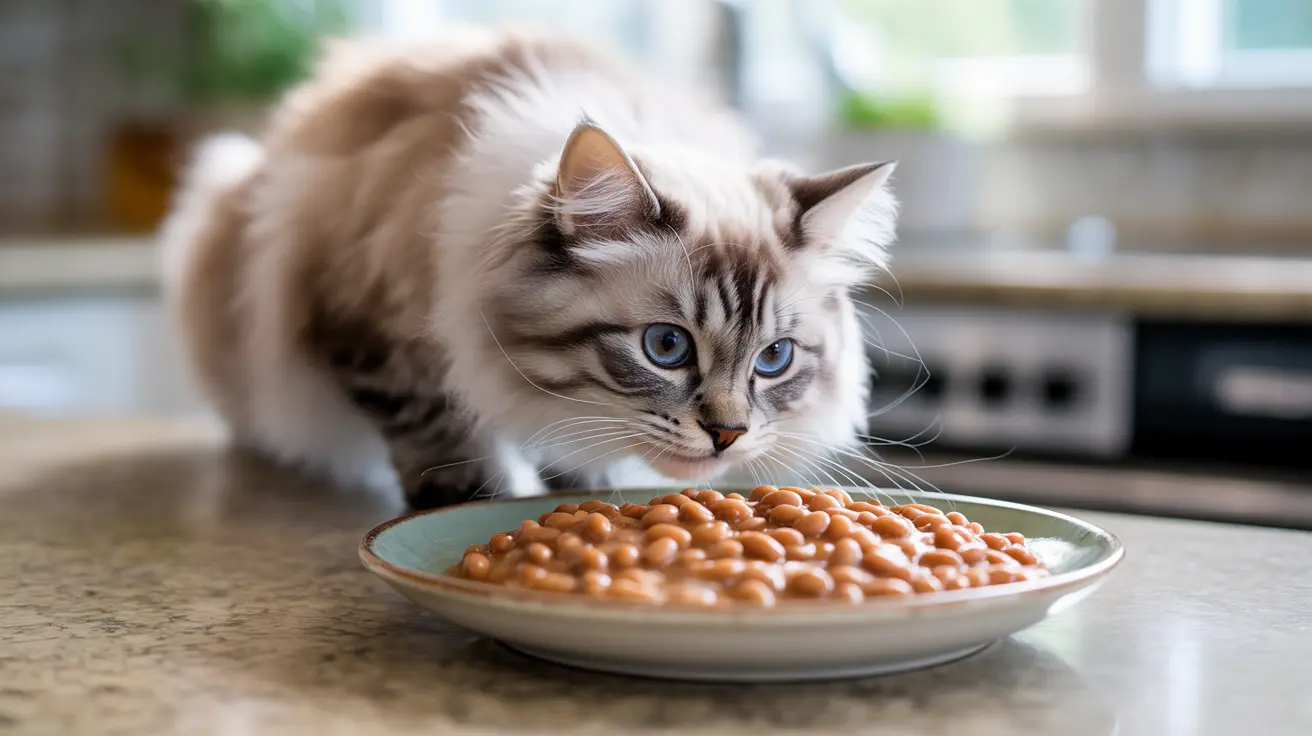Why Baked Beans Are Dangerous for Cats
Baked beans contain multiple ingredients that can be harmful or even toxic to cats. The primary concerns include:
Toxic Ingredients
Many baked bean recipes contain onion and garlic powder, which are highly toxic to cats. These ingredients can cause severe anemia by damaging your cat's red blood cells, even in small amounts. Some varieties may also contain artificial sweeteners like xylitol, which is extremely dangerous for pets.
High Sodium Content
The excessive salt content in baked beans can lead to sodium ion poisoning in cats. This condition can cause severe dehydration, elevated blood pressure, and potential kidney damage. Cats have much lower sodium requirements than humans, making even moderate amounts dangerous.
Sugar and Additives
Commercial baked beans typically contain high levels of sugar, artificial preservatives, and various seasonings. These ingredients can upset your cat's digestive system and potentially contribute to feline obesity and diabetes.
Health Risks and Complications
Immediate Health Concerns
If a cat consumes baked beans, they may experience:
- Vomiting and diarrhea
- Lethargy and weakness
- Excessive thirst
- Abdominal pain
- Loss of appetite
Long-term Health Issues
Regular exposure to baked beans can lead to more serious conditions:
- Chronic digestive problems
- Kidney dysfunction
- Pancreatic inflammation
- Nutritional imbalances
- Weight management issues
What to Do If Your Cat Eats Baked Beans
If your cat has consumed baked beans, take these immediate steps:
- Remove any remaining beans from their reach
- Monitor their behavior closely
- Look for signs of distress or illness
- Contact your veterinarian if symptoms develop
- Keep track of how much they consumed
Safe Dietary Alternatives for Cats
Instead of baked beans, focus on providing your cat with appropriate nutrition through:
- High-quality commercial cat food
- Veterinarian-approved treats
- Lean, cooked meats (without seasonings)
- Cat-specific dietary supplements when recommended
Frequently Asked Questions
Are baked beans safe for cats to eat at all?
No, baked beans are not safe for cats to eat. They contain numerous ingredients that can be harmful to cats, including toxic seasonings, excessive salt, and unnecessary sugars.
What are the health risks if my cat eats baked beans?
The main health risks include digestive upset, sodium poisoning, anemia (from onion/garlic), and potential kidney problems. Cats may experience vomiting, diarrhea, lethargy, and in severe cases, organ damage.
Can the ingredients in baked beans like onions or xylitol harm my cat?
Yes, both onions and xylitol are extremely toxic to cats. Onions can cause severe anemia, while xylitol can lead to dangerous drops in blood sugar and potential liver failure.
What symptoms should I watch for if my cat accidentally eats baked beans?
Monitor for vomiting, diarrhea, excessive thirst, lethargy, abdominal pain, and changes in urination. If you notice any of these symptoms, contact your veterinarian immediately.
Are plain cooked beans ever okay to give cats as a treat?
While plain, fully cooked beans aren't toxic, they provide no nutritional benefit to cats and can still cause digestive upset. It's best to stick to cat-specific treats and foods designed for feline nutrition.
Remember, cats are obligate carnivores who thrive on a meat-based diet. When in doubt about what to feed your cat, always consult with your veterinarian for professional guidance tailored to your pet's specific needs.






